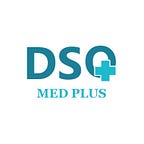10 Key Components of a Medical Billing Audit Checklist
In the complex and ever-evolving world of healthcare, precision, transparency, and adherence to regulations are paramount. One crucial aspect of ensuring these standards is the medical billing audit checklist. Have you ever wondered how healthcare providers guarantee their billing processes’ accuracy, compliance, and financial integrity? This article aims to unravel the mystery by exploring ten critical components of a comprehensive checklist for ensuring accuracy, compliance, and financial integrity in medical billing.
1: Patient Information Accuracy
The foundation of a solid checklist for billing audits begins with patient information accuracy. It’s essential to ensure that patient details, including their name, date of birth, and insurance information, are recorded precisely. Any inaccuracies in this fundamental information can lead to denied claims, delayed payments, and compliance issues. Specialists in billing audits meticulously verify this information, leaving no room for error.
2: Charge Capture and Coding
Another critical component of the medical billing audit checklist is a thorough charge capture and coding process review. Coding accuracy is vital to describing the services provided, and any errors or discrepancies can result in claim denials or underpayments. Auditors closely examine Current Procedural Terminology (CPT) and International Classification of Diseases (ICD-10) codes as part of the comprehensive Medical Billing Audit to ensure they align perfectly with the services documented in the patient’s medical records. This ensures that the services provided are appropriately and transparently billed.
3: Compliance with Regulatory Guidelines
In the highly regulated healthcare industry, adherence to regulatory guidelines is non-negotiable. This crucial component ensures that billing practices align with federal and state regulations. Key regulations include the Health Insurance Portability and Accountability Act (HIPAA) and the Affordable Care Act (ACA). Compliance with these regulations is not just a matter of protocol; it safeguards patient privacy and upholds billing transparency.
4: Documentation Review
Accurate and comprehensive documentation is the backbone of a successful medical billing audit. Auditors review documentation meticulously to ensure that it is complete and accurate. This meticulous documentation proves that the services billed were indeed provided and medically necessary. It also minimizes the risk of denied claims, as a well-documented medical record offers a solid foundation for accurate billing.
5: Claim Submission Accuracy
Submitting claims accurately and promptly is vital in healthcare billing. Any discrepancies or errors during this process can lead to claim rejection or payment delays. The audit checklist includes a comprehensive examination of the entire claims submission process. Auditors ensure that all required documents, authorizations, and supporting documentation are included. This meticulous approach helps streamline the billing process and reduces the chances of errors.
6: Compliance with Payer Policies
Different insurance payers may have specific policies and guidelines that must be followed. These policies often change, and keeping abreast of them is essential to ensuring timely and accurate reimbursement. Auditors scrutinize billing practices as part of the medical billing audit to ensure they align with each payer’s requirements. Compliance in this area minimizes the risk of payment discrepancies and denials.
7: Payment Posting Verification
Payment posting is a crucial step in the billing process. It involves reconciling payments received with the billed amounts. Auditors confirm that prices have been accurately posted to patient accounts and that discrepancies are promptly addressed. This component ensures financial integrity in the billing process, directly impacting revenue recognition and overall financial health.
8: Denial Management and Appeals
Denied claims are a common challenge in medical billing. Handling them efficiently and effectively is critical to maximizing revenue. This component of the audit checklist assesses the effectiveness of denial management processes and the efficiency of the appeals process. Identifying and rectifying the root causes of denials is crucial to ensuring that all services provided are rightfully reimbursed.
A comprehensive medical billing audit checklist includes reviewing the entire revenue cycle management process. The revenue cycle encompasses various stages, from patient registration to final payment collection. Auditors analyze the efficiency of each step, identifying bottlenecks and opportunities for optimization. An efficient revenue cycle ensures accurate billing and improves healthcare organizations’ financial well-being.
10: Staff Training and Education
Last but certainly not least, ongoing staff training and education are vital components of the audit checklist. The healthcare industry is dynamic, with regulations, coding guidelines, and payer policies constantly evolving. Keeping billing staff updated on the latest regulations and best practices is essential for accurate and compliant billing. Regular training sessions and educational programs equip staff with the knowledge and skills to navigate the ever-changing healthcare landscape.
Conclusion:
In the intricate world of medical billing, accuracy, compliance, and financial integrity are paramount. The medical billing audit checklist, comprising these ten key components, is a comprehensive tool for healthcare providers to ensure their billing practices are transparent, compliant, and error-free. By consistently monitoring and auditing their billing processes, healthcare facilities can enhance revenue, reduce compliance risks, and provide better patient care.
A robust checklist is a cornerstone of financial success and regulatory adherence in the ever-evolving healthcare landscape. It provides the necessary framework for healthcare providers to maintain transparency, uphold compliance with regulations like HIPAA and ACA, and ensure accurate and timely billing. By adhering to this checklist, healthcare organizations can safeguard their financial health, maintain patients’ trust, and continue providing high-quality care in an increasingly complex industry. The medical billing audit checklist is not just a tool; it’s a commitment to excellence in healthcare billing.
